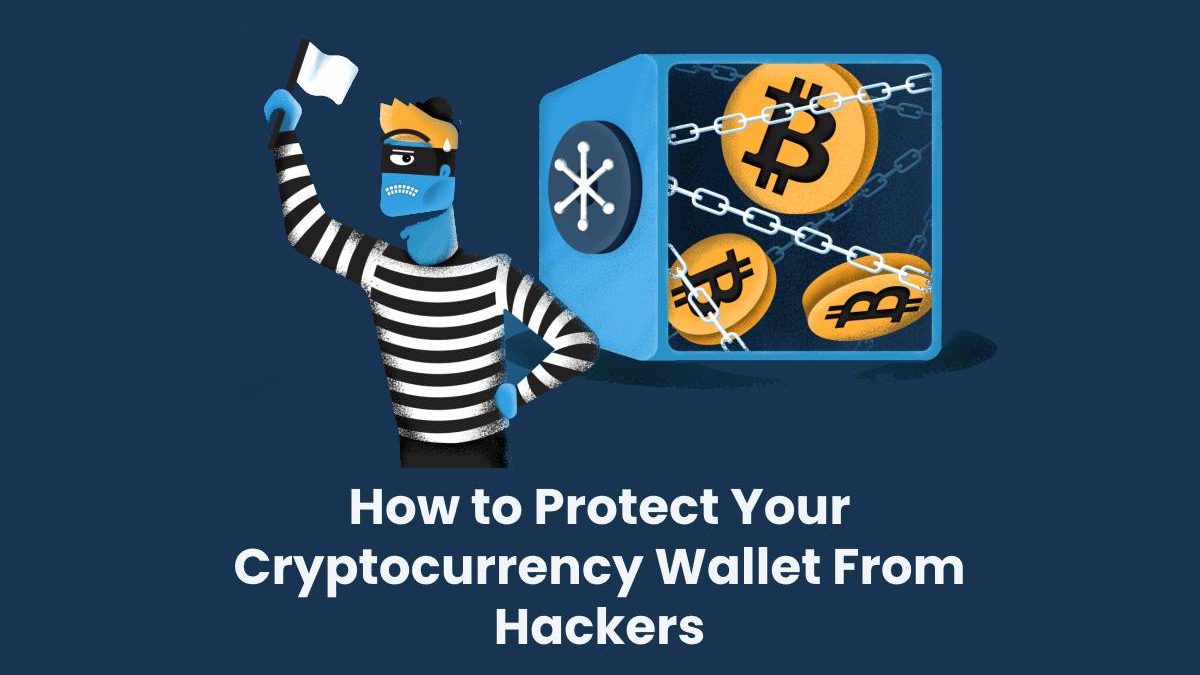How to Protect Your Cryptocurrency Wallet From Hackers
Cryptocurrencies are some of the safest ways to send money today. They are anonymous and under several layers of security thanks to blockchain technology. That said, scammers always find a way to prey on unsuspecting crypto holders, and hacking accounts and cryptocurrency wallets are relatively common occurrences these days.
That’s why it’s essential to learn asset protection and methods that will ensure the safety of your crypto wallet and its content. In this article, you’ll find some of the most popular methods other crypto enthusiasts like you use to protect their property, along with warnings about tactics hackers may try to use to get ahold of your wallet.
Table of Contents
Use Hardware Wallets if Possible
Traditional, digital crypto wallets are handy and straightforward to use. They are, after all, what you’ll be creating by default if you want to use cryptocurrencies. That said, they aren’t the most secure option around. Instead, we recommend using so-called “cold storage” or hardware wallets.
A hardware wallet is a device much like a USB stick with its own encryption and other security measures to protect against theft. It doesn’t have an internet connection but can store several assets. Hardware wallets don’t hold your cryptos, though, but instead, protect your private keys from prying eyes. Some more advanced models can even be used to log into different popular services and perform direct trades to other wallets.
Practice Good Cybersecurity Habits
Many people get their crypto wallets hacked is because they forget the basics of cybersecurity. Any computer expert will tell you that the best antivirus isn’t anything you can buy, but the users themselves. You see, hackers like to use social engineering and prey upon people’s weaknesses. They’ll try to trick you into clicking some sketchy link or download an even sketchier file on the pretense that you may have won a lottery or just got a promotion, or it’s just a bunch of pictures of cute kittens that may never hurt a fly. Phishing, in short, is how people lose their crypto coins.
How do you protect against this? Well, first and foremost, do not click any link that you receive over email, through texts, or via social media platforms. This is especially important if the link is obfuscated and contains a web domain you’re not familiar with. In modern web browsers, you can check the link without clicking it by hovering your mouse over it and reading where it goes at the bottom of the browser window. While the links themselves aren’t always malicious, the files you may download through them are. You need a good anti-malware app installed on your device just in case a malicious file gets through so that it gets eradicated before it manages to cause any harm.
Some practices can additionally improve both your computer and crypto security. First off, you shouldn’t give out your private wallet key or passwords to anyone. Speaking of passwords, keeping them up-to-date and hard enough to crack is essential, but it’s even better if you can attach some authenticator r multi-step protection app. Regular computer backups are also highly encouraged as they let you restore your data and, possibly, recover from a hacking attack.
Get Additional Wallets
Advanced crypto users with assets in more than a handful of cryptocurrencies may want to set up a few wallets to store their assets in. Keeping everything on a single wallet is unsafe and, in case you get breached, you may lose everything. Instead, get a wallet that you’ll use for regular transactions and another that will be dedicated to a specific market, service, or an NFT (non-fungible token) exchange. By diversifying your wallet collection, you’ll protect your portfolio and won’t sacrifice anything but a little bit of convenience in your life.
Secure Your Internet Connection
Some crypto users may want to invest in a good VPN on top of all other security measures they may have set up. A VPN masks your actual IP address and can let you virtually be in a whole other location in the world. These services are vital if you’re connecting to public Wi-Fi hotspots as they have a separate encryption layer that masks all your traffic and hides your identity. Many VPNs now have free trials, so you can try a few before settling with one service.
Wrapping Up
We hope you’ve learned more about securing your cryptocurrency wallet and picked up a good habit or two that will help you thrive in the crypto world. While it may seem like a jungle out there, there’s not really all that much to asset protection once you’ve got these basics down. Good luck!
Related posts
Sidebar
Recent Posts
An Inside Look Of Paraulogic
Introduction Welcome to the exciting world of Paraulogic! Are you ready to dive into a linguistic adventure and put your…
Empowering Artists with Cryptocurrency: A Guide to Selling Art Using NFTs
In the ever-evolving landscape of the art world, artists are constantly seeking innovative ways to showcase and monetize their creations….



